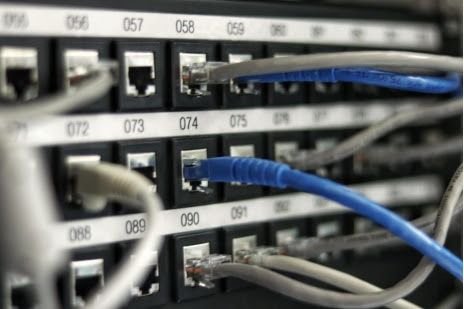

Why has the adoption rate of the sixth generation internet protocol (IPv6) not gained ground despite numerous warnings issued by many international organisations, notably RIPE NCC, the regional internet registry overseeing IT infrastructure in Europe , the Middle East and parts of Asia? Chafic Chaya, regional communications manager for the Middle East at RIPE NCC, told TechRadar Middle East that this is partly due to the use of technical workarounds and the misconception that there is no end-user demand, that little is accessible. content over IPv6 or that customer premise equipment (CPE) such as modems are not designed to connect over IPv6. However, he said that major content providers such as YouTube, Facebook and Netflix are increasingly accessible via IPv6 and outdated CPE is being replaced by modern IPv6-capable equipment. Furthermore, he said that the (IPv4) pool had been depleted in November this year, which means that networks in Europe, the Middle East and parts of Central Asia can no longer receive "New" IPv4 addresses. Vincentas Grinius, CEO of Heficed IPv4 Rental Market, said that global exhaustion of IPv4 addresses continues to be a problem for growing organizations that are not ready for the switch to IPv6. He said that IPV4 is a hot topic right now and will be for the next 10 years as Internet penetration rates are increasing rapidly and IPv6 does not cover the Internet. Internet set. IPV6 was introduced in 1999, but only 25% of the Internet has been accessible via IPv6 in the last 20 years, while the remaining 75% is via IPv4. With IPv4, the Internet can have 32-bit addresses and provides about 4.300 billion addresses, but with IPv6, it can have billions and billions of 128-bit addresses.
Investment is the biggest obstacle.
IPv6 is very important due to the scarcity of Internet protocols and the inability of IPv4 to meet the increasing demand in light of the rapid growth of the Internet. The demand for IPv6 will increase as more IoT devices connect to the network. Salam Yamout, Internet Society Regional Director for the Middle East, said that all the networks in the Arab region are relatively new and they have no problem switching to the Internet. ; IPv6, but unless everyone switches to IPV6, network operators must maintain both IPv4 and IPv6 at the same time. Grinius said that investing in IPv6 is the biggest hurdle and therefore IPv4 has been gone for a while. Chaya said networks are increasingly using complex solutions to make up for the shortage of IPv4 addresses. However, he said that workarounds like carrier-grade network address translation (CGNAT), which shares multiple users over IP, add to a carrier's operating costs, which also makes enforcement agencies of the law (LEA) are difficult and difficult to identify the culprits. behind the cybercrime. "While network engineers may be on par at a technical level, other immediate business concerns often end up taking precedence due to modest awareness at C-level and decision makers," he stated. Grinius added that some organizations control thousands of IPV4 addresses and that around 20% often go unused. "They hold the IP addresses, either for future growth or to sell when they get a better price," he said. Originally a free resource, IPv4 addresses have become a commodity and a strategic asset for businesses.
IPv4 prices go up
According to Ripe NCC, the United Arab Emirates was the first country in the Middle East to convert to IPv6. “We still need two decades or more for IPv6 to be operational. However, IPv4 prices are rising rapidly. At the moment, the price dynamics is about 25-30% per year. A year ago, the price of IPv4 was around €18, but now it has risen to €25 per IP address," Grinius said. People can buy an IPv6 address from a registry by becoming a member for €1,500 a year, and an IPv4 address can be rented for as little as 25 cents a month. The right solution for small and medium-sized businesses, rather than buying an IP address, he said, is to rent an IP address. However, Grinius said the market it is barely regulated and scattered among countless IP address brokers, leading to unclear pricing and practices.He said demand and supply are growing rapidly with the largest demand coming from the US, Europe and the Asian region.We work with many Arab countries including the United Arab Emirates Chaya said the shortage of IPv4 addresses creates many problems for a network looking to grow or add new users, many networks today are trying to alleviate this shortage by acquiring excess addresses from other networks through the IPv4 transfer market or intermediaries, or by implementing address exchange technologies such as CGNAT. "While these approaches may make immediate sense, none of them solves the underlying problem, which is that there aren't enough addresses in IPv4 to support the load of an Internet as large as we have today," he said.

